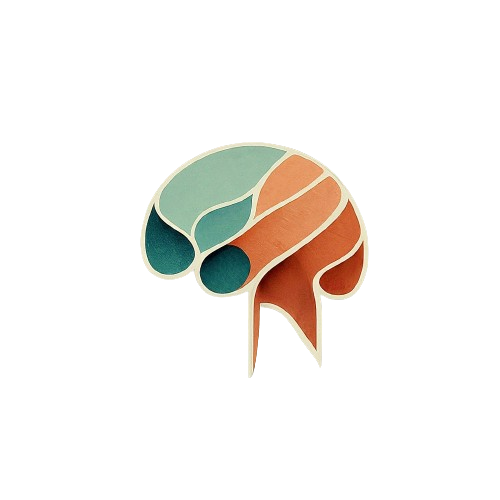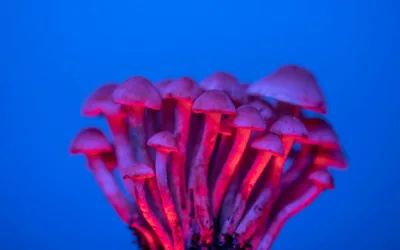Have you ever heard of someone describing a feeling of complete dissolution of self during a spiritual experience or after using psychedelics? This phenomenon, known as “ego death,” is a fascinating and sometimes controversial topic in the realms of psychology, spirituality, and psychedelic research. In this comprehensive guide, we’ll explore what ego death is, its history, potential benefits, risks, and its significance in various contexts.
What is Ego Death?
Ego death, also referred to as ego dissolution or ego loss, is a profound psychological experience characterized by a complete loss of subjective self-identity. It’s often described as a feeling of “losing oneself” or merging with the universe, God, or a greater cosmic consciousness. This phenomenon has been reported in various contexts, including:
- Spiritual and mystical experiences
- Psychedelic drug use
- Deep meditation practices
- Near-death experiences
- Intense life-changing events (e.g., childbirth)
To truly understand ego death, we first need to grasp the concept of the ego itself.
Understanding the Ego
In psychological terms, the ego is the part of your psyche that forms your sense of personal identity and self-esteem. It’s essentially “the I” or “me” of your self-perception. Your ego influences:
- How you view yourself
- Your interactions with others
- Your perception of the world around you
Researchers have identified four main components of the self:
- Self-reflective thought (first-person perspective)
- Sense of being distinct from others and the environment
- Awareness of a physical self
- Consciousness of a personal narrative or life story
When we talk about ego death, we’re referring to the temporary dissolution of these components, leading to a radical shift in consciousness and self-perception.
The History of Ego Death
While the term “ego death” might sound modern, the concept has roots in ancient spiritual traditions:
Ancient Spiritual Traditions
- Buddhism: The concept of “anatta” or “non-self” is central to Buddhist philosophy, emphasizing the impermanence and illusion of a fixed self.
- Hinduism: The idea of “moksha” or liberation involves transcending the individual self to merge with the divine.
- Christian Mysticism: Some Christian mystics describe experiences of “union with God,” which bear similarities to ego death.
- Sufism: The concept of “fana” in Sufi Islam refers to the annihilation of the self in divine unity.
Modern Usage and Psychedelic Research
The term “ego death” gained prominence in the 20th century, particularly in connection with psychedelic experiences:
- 1960s: Timothy Leary introduced the term in his book “The Psychedelic Experience,” drawing parallels between LSD trips and the Tibetan Book of the Dead.
- 1970s: Psychologist Stanislav Grof suggested that ego death should be the primary aim of psychedelic therapy.
- 21st Century: Renewed scientific interest in psychedelics has led to more research on ego dissolution and its potential therapeutic benefits.
Triggers of Ego Death
Ego death can be triggered by various means, both natural and induced:
- Psychedelic Substances:
- LSD (Lysergic acid diethylamide)
- Psilocybin (found in “magic mushrooms”)
- DMT (Dimethyltryptamine)
- Ketamine
- Ayahuasca
- Meditation and Spiritual Practices:
- Deep meditative states
- Intense prayer or contemplation
- Yoga and breathwork
- Extreme Life Experiences:
- Near-death experiences
- Childbirth
- Intense physical or emotional trauma
- Neurological Factors: Recent research suggests that changes in glutamate levels in specific brain regions may play a role in ego dissolution experiences.
The Neuroscience of Ego Death
While the subjective experience of ego death can seem mystical or otherworldly, neuroscience is beginning to unravel some of the brain mechanisms involved:
- Default Mode Network (DMN):
- The DMN is a network of brain regions associated with self-referential thinking and autobiographical memory.
- During ego dissolution, activity in the DMN is significantly reduced.
- Glutamate Levels:
- A 2020 study found that glutamate levels in different brain regions correlated with positive or negative experiences of ego dissolution.
- Lower glutamate in the hippocampus was associated with more positive experiences.
- Brain Connectivity:
- Psychedelics can increase global brain connectivity, potentially leading to new perspectives and experiences of unity.
Signs and Characteristics of Ego Death
Ego death is a highly subjective experience, but common themes include:
- Loss of sense of self as separate from the environment
- Feeling of unity or oneness with the universe
- Dissolution of personal boundaries
- Transcendence of time and space
- Profound sense of peace or bliss (in positive experiences)
- Intense fear or panic (in challenging experiences)
- Sense of dying or rebirth
- Ineffability (difficulty describing the experience in words)
Potential Benefits of Ego Death
While research is ongoing, several potential benefits have been associated with these experiences, particularly in therapeutic contexts:
- Improved Mental Health:
- Reduced symptoms of depression and anxiety
- Increased sense of well-being and life satisfaction
- Enhanced Creativity:
- New perspectives and ideas
- Increased openness to experience
- Spiritual Growth:
- Deepened sense of connection to nature or the divine
- Increased sense of meaning and purpose in life
- Addiction Treatment:
- Promising results in treating substance use disorders
- Reduced Fear of Death:
- Some report less anxiety about mortality after ego death experiences
- Increased Empathy and Connectedness:
- Greater sense of unity with others and nature
Risks and Challenges of Ego Death
While ego death can be profound and potentially beneficial, it’s not without risks:
- Psychological Distress:
- The experience can be intensely frightening, especially if unexpected
- Risk of depersonalization or derealization disorders
- Integration Difficulties:
- Challenges in integrating the experience into everyday life
- Potential for spiritual bypass (avoiding real-life issues through spiritual practices)
- Legal and Health Risks (when induced by illegal substances):
- Potential legal consequences
- Risk of adverse reactions or interactions with other medications
- Psychosis Risk:
- In vulnerable individuals, psychedelic-induced ego death might trigger psychotic episodes
- HPPD (Hallucinogen Persisting Perception Disorder):
- Rare but possible long-term perceptual changes
Ego Death in Different Contexts
The experience and interpretation of ego death can vary significantly depending on the context:
Spiritual and Religious Contexts
- Buddhism: Seen as a glimpse of “emptiness” or “sunyata,” a core concept in Buddhist philosophy
- Hinduism: Interpreted as temporary union with Brahman, the ultimate reality
- Christian Mysticism: Described as union with God or “dying to self”
- Shamanic Traditions: Often viewed as a death and rebirth experience, central to initiation rites
Psychedelic Contexts
- Often unexpected and can be either blissful or terrifying
- Frequently described as the peak of a psychedelic experience
- May lead to lasting changes in personality and worldview
Therapeutic Contexts
- Increasingly studied as a potential mechanism for treating mental health issues
- Often facilitated in controlled settings with trained professionals
- Integration and follow-up support are crucial
Integrating Ego Death Experiences
For those who have undergone an ego death experience, integration is a crucial process:
- Journaling: Writing about the experience can help process and make sense of it
- Therapy: Working with a therapist experienced in non-ordinary states of consciousness
- Meditation: Continuing a meditation practice can help maintain insights gained
- Community: Sharing with others who have had similar experiences
- Creative Expression: Using art, music, or dance to express the ineffable aspects of the experience
- Lifestyle Changes: Implementing insights gained into daily life
- Grounding Practices: Engaging in physical activities to reconnect with the body and everyday reality
Ethical and Philosophical Implications
The concept of this raises several philosophical questions:
- Nature of Self: What does it mean to have a self, and can we truly lose it?
- Consciousness: How does it inform our understanding of consciousness?
- Reality Perception: If our normal ego-bound state can be dissolved, how “real” is our everyday perception?
- Therapeutic Use: What are the ethics of inducing such profound experiences for therapeutic purposes?
- Spiritual vs. Scientific Interpretations: How do we reconcile mystical interpretations with neuroscientific explanations?
The Significance of Ego Death
Ego death remains a fascinating and complex phenomenon at the intersection of neuroscience, psychology, spirituality, and philosophy. While its potential benefits are intriguing, particularly in therapeutic contexts, it’s crucial to approach the topic with caution and respect for its profound impact.
As research in this area continues to evolve, we may gain deeper insights into the nature of consciousness, the self, and human potential. Whether encountered through spiritual practices, psychedelic experiences, or spontaneous life events, ego death experiences have the power to profoundly reshape one’s understanding of self and reality.
For those interested in exploring these states, it’s essential to prioritize safety, seek proper guidance, and approach the experience with intention and respect. As we continue to unravel the mysteries of consciousness, ego death stands as a testament to the vast unexplored territories of the human mind.



